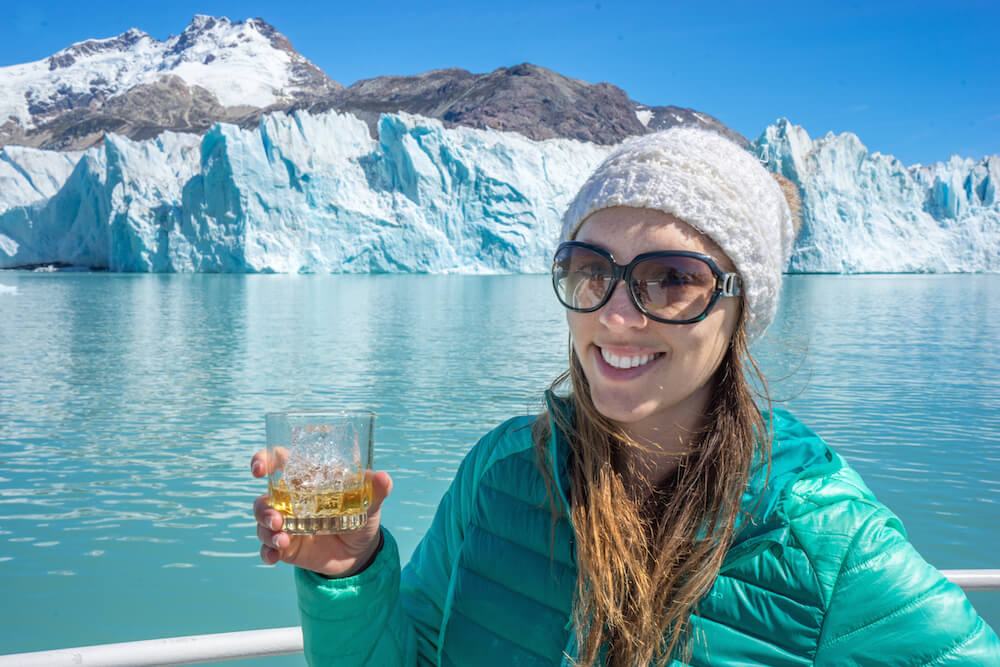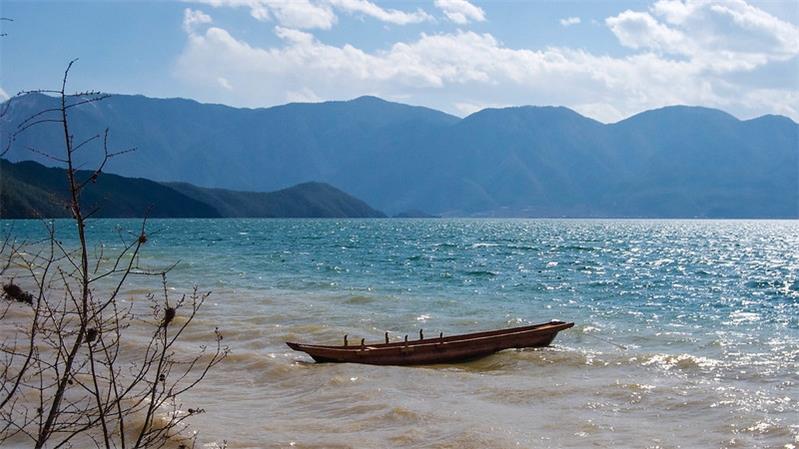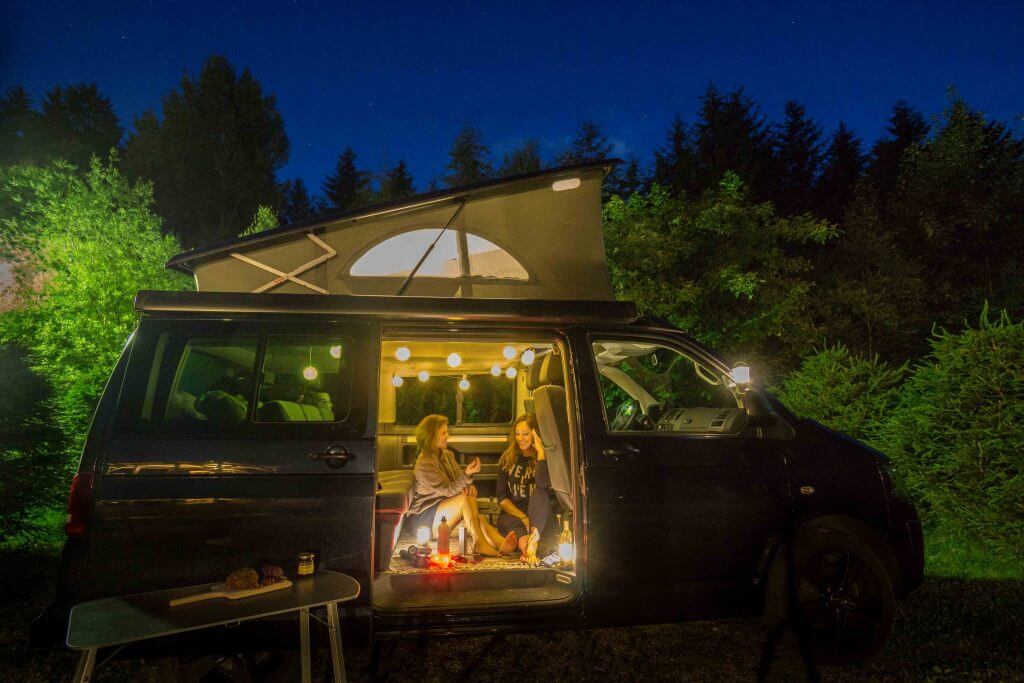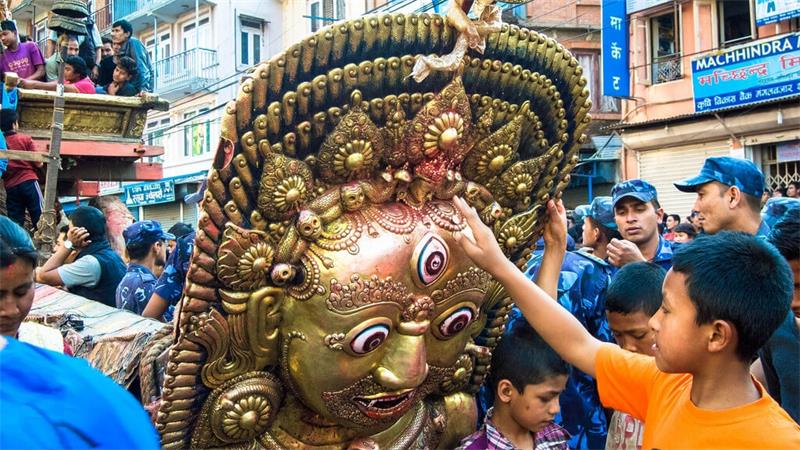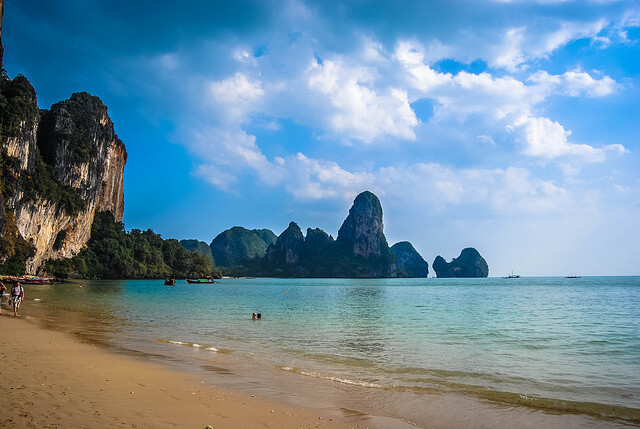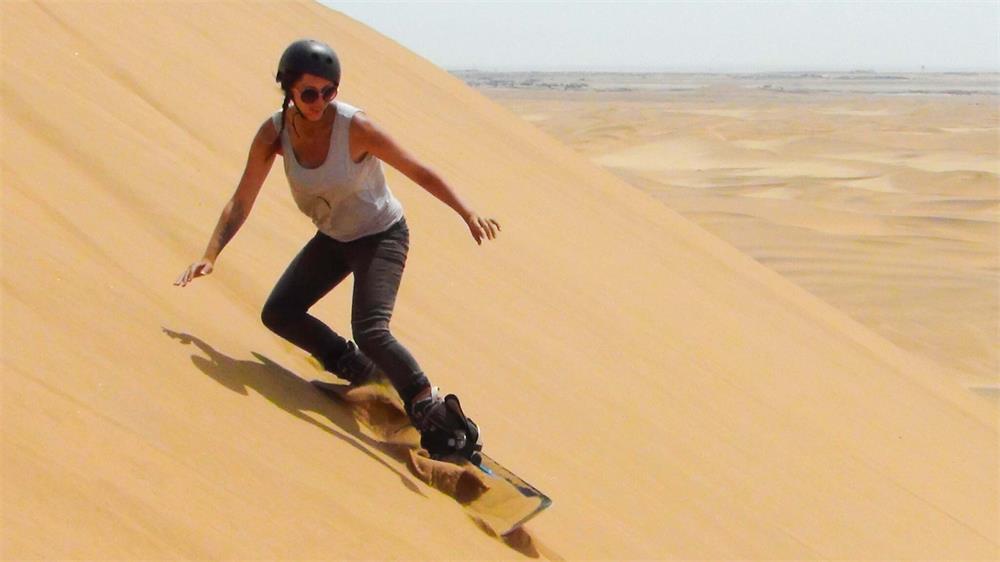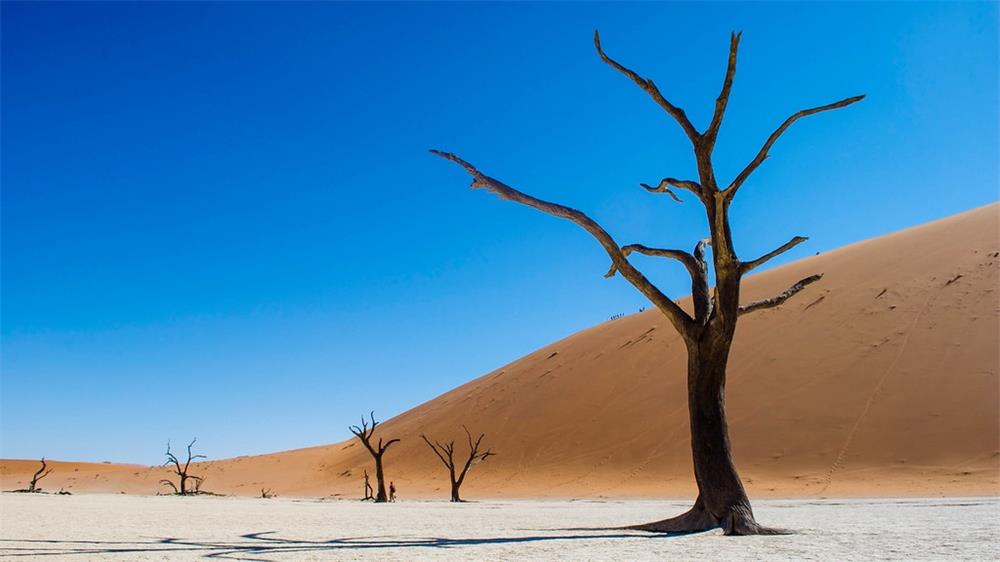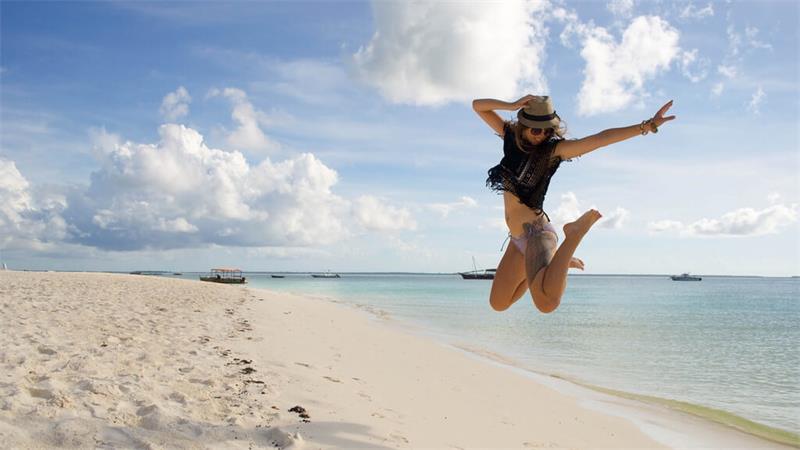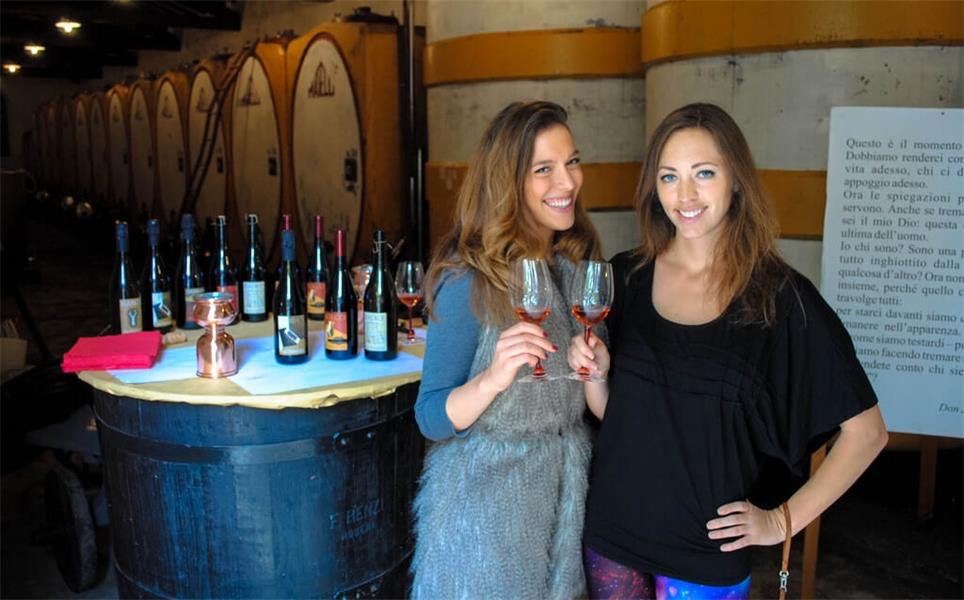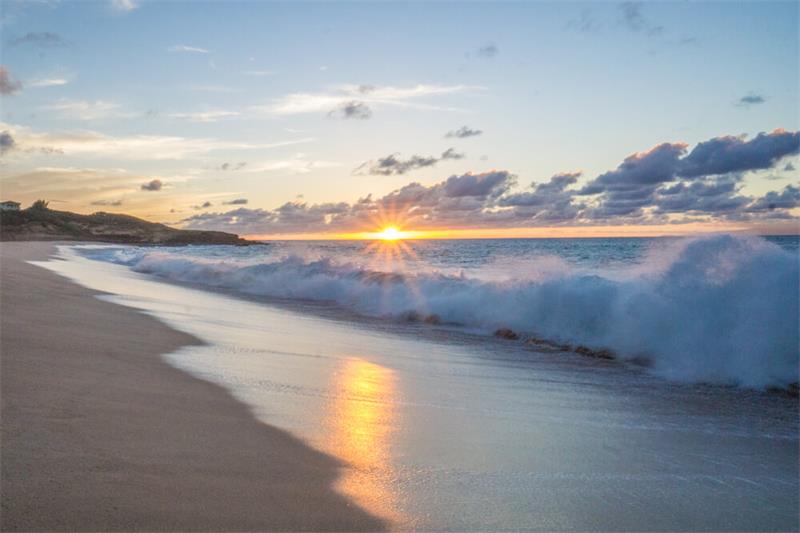
We traveled in the rented vehicle, and the other locals were astonished when they spotted Greg in the driver’s seat, their faces turning from bewilderment to astonishment and excitement. Greg was dressed in traditional Hawaiian garb, and I wore a lei he crafted from a massive leaf. I’ve always kept it on my wall for good luck.
“Do you believe Molokai was Hawaii 50 years ago?” I inquired, wondering whether it was simply a phrase or if it really true.
“I grew up here for 40 years and keep coming back, and nothing has changed,” he said.

This island gets considerably fewer visitors than neighboring islands, and the island’s economy is hurting as inhabitants battle to maintain Hawaiian tradition while also becoming overly commercial by building vacation rentals or hotels to boost tourism.
They seek to preserve Hawaiian culture by not allowing constructions to be higher than the coconut palms.

When I approach Greg about it, he explains that visitors are welcome; it’s only that they want the correct type of tourists – those who want to learn, appreciate, and be changed by Molokai rather than alter it.
Is it any surprise that Molokai, which has no lighting, traffic, or large hotels with a population of just 8,000 people, has become my favorite Hawaiian island?
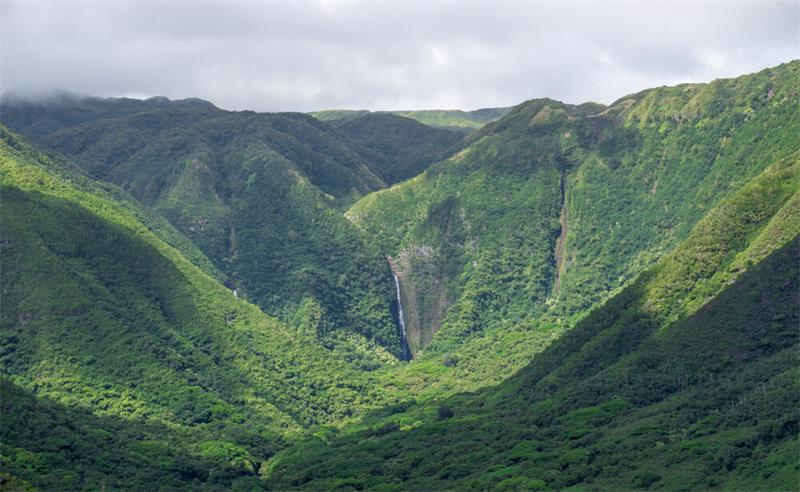
Greg’s family resides in the Halawa Valley, one of Hawaii’s oldest known (or, according to him, the oldest known) communities.
The discovery of hearths and sites of worship, called heiau, dates the region’s human habitation to 650 AD.
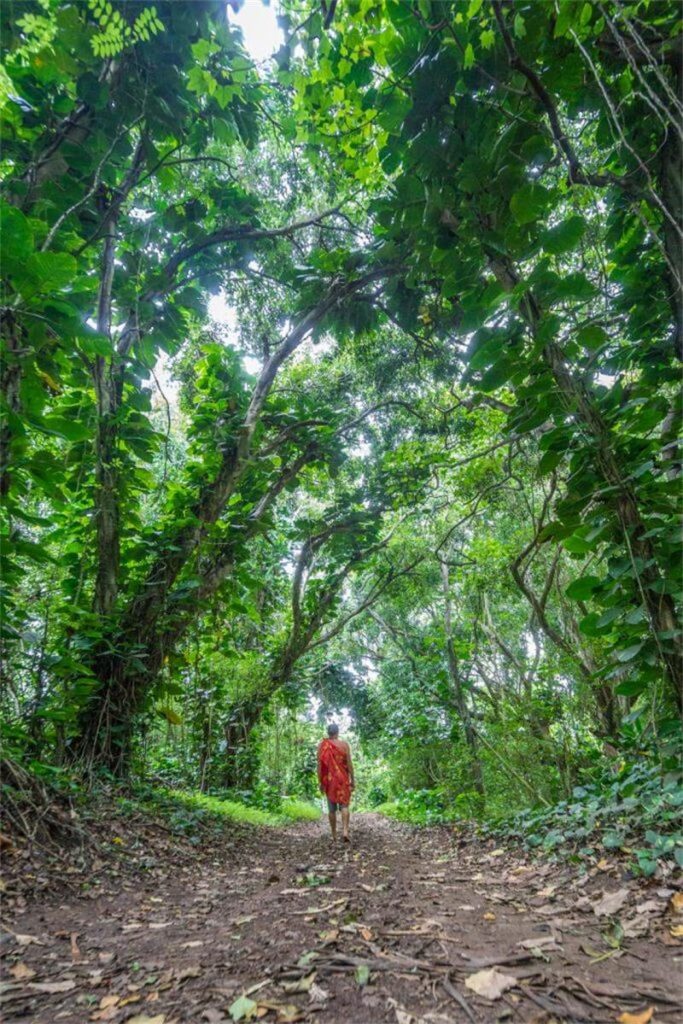
When we initially arrived to Greg’s house, we stopped on the beach and he taught me how to throw a fishing net. He was successful in catching a fish, whereas I was successful in catching a rock.
He still complimented my technique.
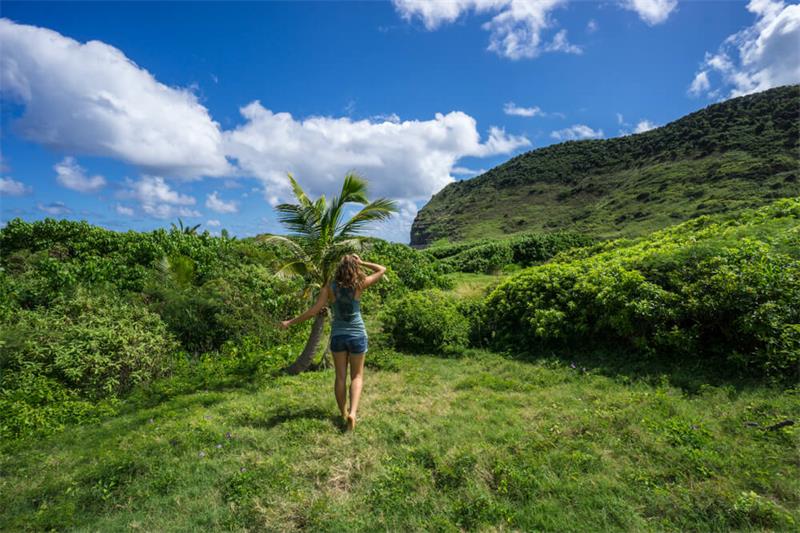
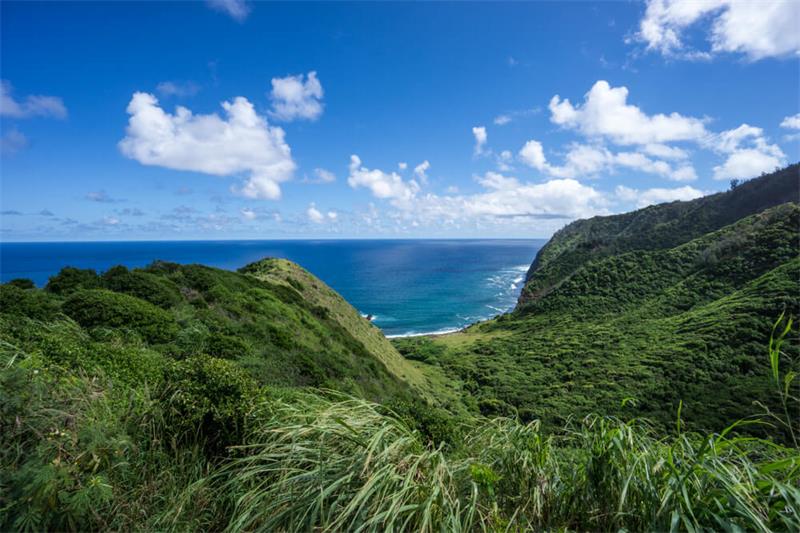
We went to his home, which from the outside seems to be a hut of odds and ends surrounded by taro, jungle vines, mango trees, luscious passion fruit, and elephant ears-sized leaves.
It’s the type of location where you can live off the land with no issue since there’s so much deer, fish (if you can catch it), fruit, and taro.
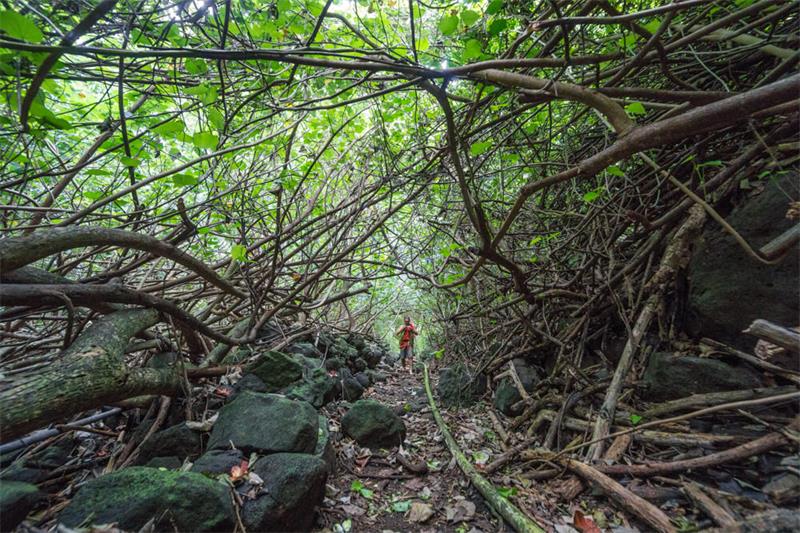
We had a purpose that day: there was a waterfall to which I had to swim, leap, and, of course, photograph.
But first, we had to say Aloha to Greg and his father, pushing our foreheads and noses together, and inhaling in. I still wore my lei and a red shawl over my shoulders, similar to Greg’s. They sung a few lines while blowing into a conch. Before accessing holy locations, Hawaiians would beg for permission in this manner. Greg’s family is carrying on the tradition.
Greg and I proceeded into the bush to the right of his house, barefoot since it was muddy and being barefoot is pleasant anyhow, and I spotted the heiau everywhere. He also pointed out grave sites just above the walls and in the distance, areas you wouldn’t dare to cross but could still sense a spiritual presence.
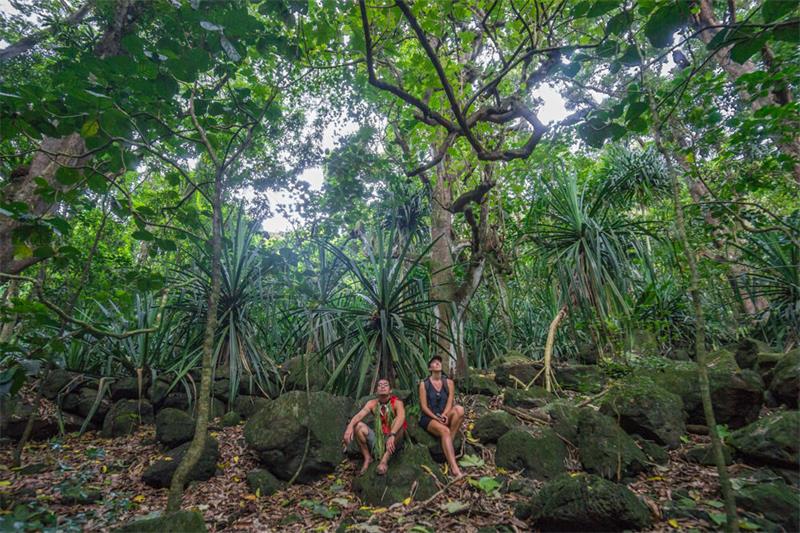
There is a lot of nonsense in Hawaii these days. As you get off the airport, there’s entertainment, luaus with a roast pig, and since it brings in visitors and bucks, it’s occurring wherever you turn, but is it authentic?
Such things have always discouraged me, and I wondered whether there were any true cultural rites in Hawaii that I might engage in.
I eventually located it in the bottom of a valley accessible only by foot.

A few muddy miles later, the 250-foot two-tiered Mooula Falls appeared.
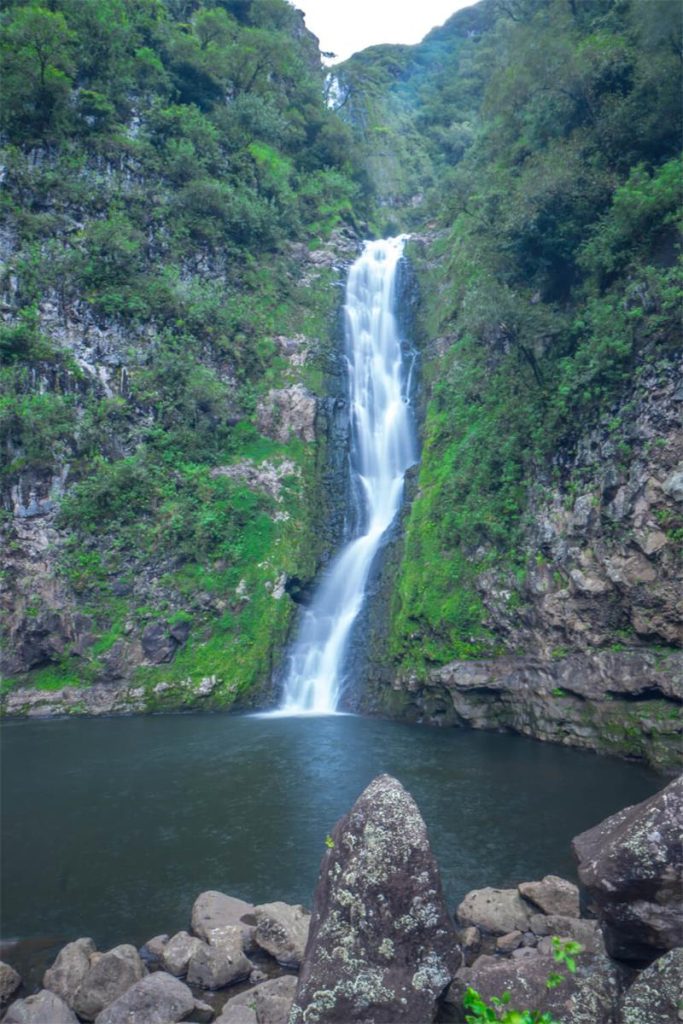
“The water is icy!” Greg forewarned.
Please accept my greetings from California. You have no idea what cold water is, my Hawaiian boy.
I slid down, swam to the falls (which were not very chilly), felt the cool, forceful flow, and drifted about for a time.
I savored the last minutes of my time in Hawaii. It was the final full day of my two-week vacation in Hawaii, and I knew I had discovered my favorite spot.
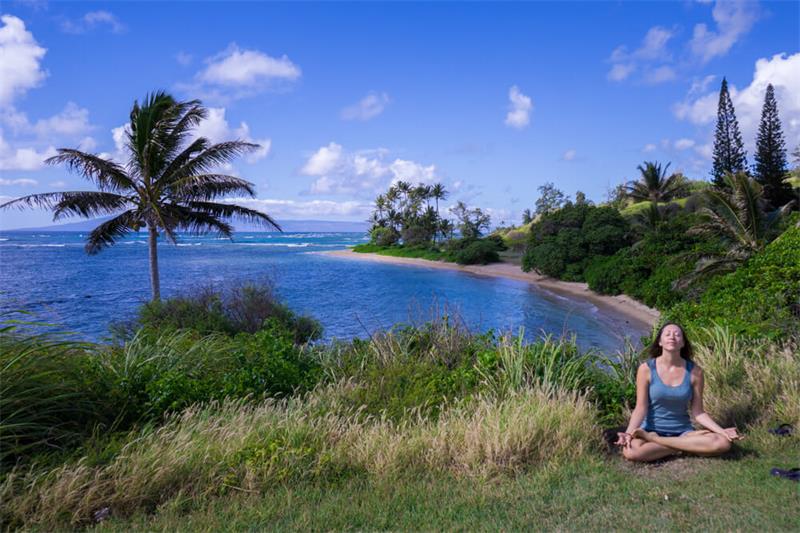
We leaped back and beat the taro root into a sticky lump. It was said that it didn’t taste nice, but that was from a few individuals who had never had to sample it fresh. That was amazing, and I could eat it every day.
Molokai may lack opulent resorts, five-star restaurants, spas, and even traffic lights. I may be coated in dirt and insect bites from Halawa Valley, but here is my happy spot.
It’s my happy spot because it’s authentic.
Molokai, never change.
Do it yourself:
- You may hire a vehicle from Alamo at the airport and spend the day driving around Molokai, all the way to the end of the road east (but watch out for the hairpin curves), up to Kalaupapa, and to Papohaku Beach on the west side for the sunset.
- Book the experience with Greg (just $60, wow, I can’t believe it’s so cheap), which includes the cultural experience and the waterfall trek. Since the waterfall spans private land, it is only accessible with a guide.
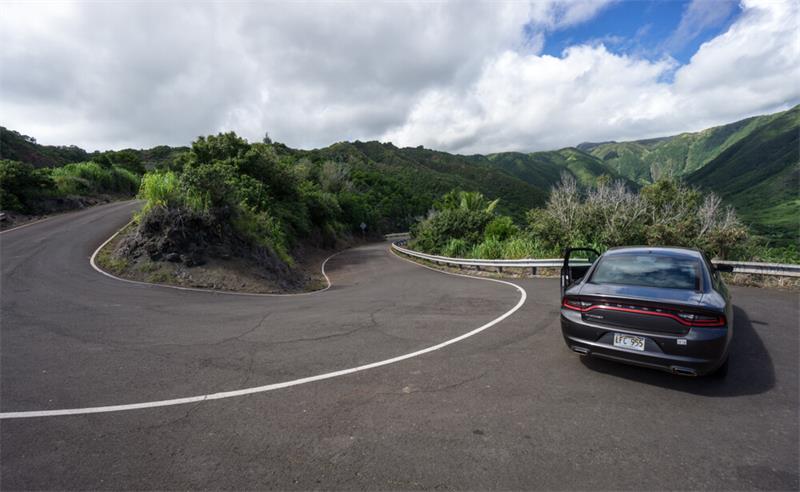
Stay:
There are many vacation cottages on the island, as well as the Molokai hotel where I stayed. I felt it was a fantastic location, with a kitchenette and direct access to the beach, as well as excellent music every night (but don’t worry, it stops early).

*My trip to Molokai was planned in partnership with Go Hawaii. I decided to write about this incident since it was highly meaningful to me. All of my views are my own.

